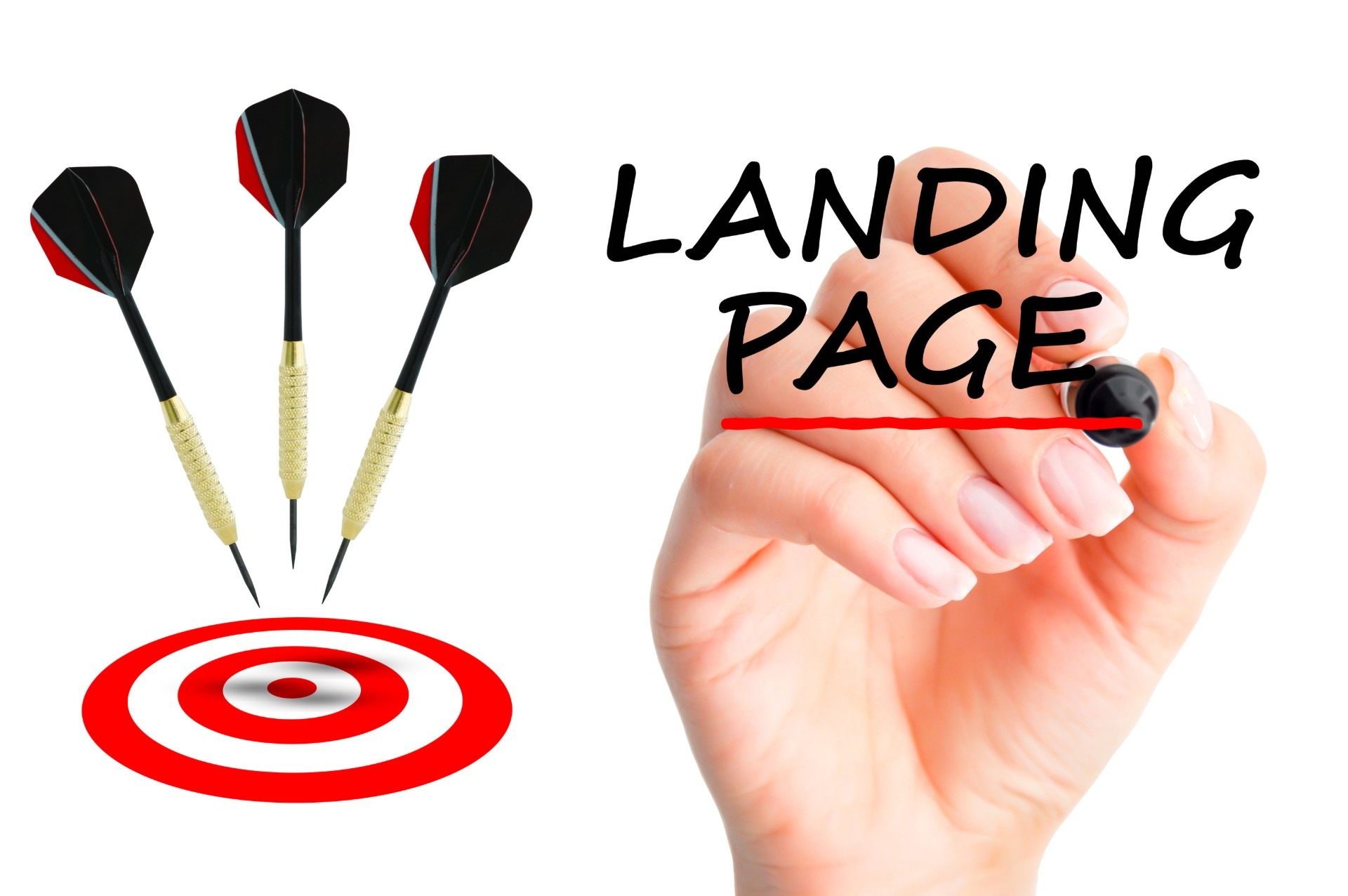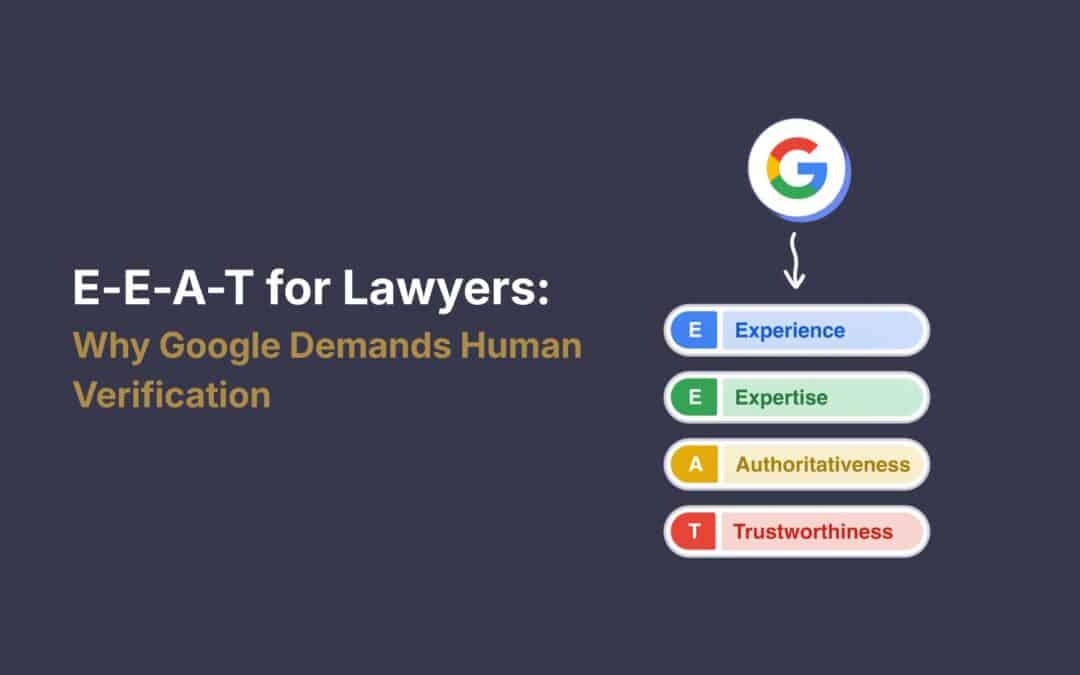In simple terms, a landing page is a standalone web page dedicated to a specific marketing or advertising campaign – it is where your visitors will ‘land’ after clicking on a link contained in the ad or promotion.
As with all advertising, the sole intention of an advert is to get your target audience to respond according to your desired objective e.g. make a purchase, visit your website, register for attendance at an event, book a consultation, sign up for your e-newsletter etc. Irrespective of your ad’s purpose, the fundamental principle of any marketing campaign your law firm undertakes should be to ensure a ‘message match’.
Essentially this means driving responders to a page that accurately echoes your marketing message and provides the information your customers expect based on the advert or promotion. Visitors will become very impatient and leave your site within seconds if you don’t support their action with a matching landing page that highlights relevant content to the advert they are responding to.
This objective perfectly matches the objective of a landing page – a page that aims to match your marketing message with a single-focused advertising goal.
If your law firm isn’t using tailored landing pages to message match your advert but rather directing all your marketing or advertising to your website home page, not only are you running ineffective marketing campaigns, you are wasting both time and money too.
Before we uncover the benefits as to why your firm should be using landing pages, let’s take a look at some popular forms of advertising and how your law firm can effectively use landing pages to enhance the success of your advert.
Marketing channel examples
Yellow Pages
Advertising within the Yellow Pages is typically generic and covers a broad scope of your offering. Therefore your landing page should remain generic and continue to expand on the professional services your practice offers along with your contact details e.g. website, telephone number, address and email. If your landing page isn’t too cluttered you may want to include customer testimonials to build trust with your prospects.
Outdoor Advertising
Outdoor advertising includes billboards, signage, banners, posters, bus adverts etc. Advertising in these forms of media could be either general in nature, or could focus on a particular service your legal practice offers. In this example, you may decide to use banner ads to advertise your expertise in Mergers and Acquisitions on taxis that service Sydney’s CBD.
Since this is a highly focused advert aimed at business professionals the landing page you direct prospects to should continue a professional theme and be relevant to the particular services you offer with regards to Mergers and Acquisitions.
Radio
Radio advertising is a great way to broadcast a topical message. Since the advert needs to be concise and compelling you need to spark attention immediately and direct your customers elsewhere for further information.
Let’s assume your law firm runs a local radio advert for an event you are hosting. The intention of your advert is to get customers to register and pay for their attendance. The landing page you send customers to should describe the event in more detail, include an agenda that lists the speakers and topics to be covered, highlight the benefits of attending and should have a registration form and payment processing to accept bookings.
Upon completion of the process your customer should receive a ‘thank you’ confirmation email with their e-ticket for access to the event.
Television
TV advertising can take the form of a general advert for your law firm or a specific advert focused on a particular service. In the case of a TV advert, your ad should be screened at the best appropriate time i.e. during a TV program that holds relevance to your marketing message.
As an example, you could advertise your Corporate Law services on SBS during the screening of Small Business Secrets and perhaps offer a discounted consultation. Once again, your landing page would need to reflect further information that follows on from your marketing message and allow interested parties to sign-up for a discounted consultation with a partner from your law firm.
Pay-per-click (PPC) Advertising
The most popular form of PPC advertising is Google Adwords. Since there is very limited space available to market your law firm, your advert needs to entice customers to want to know more and click the call-to-action. Since PPC adverts are driven by specific keywords, your advert and your landing page need to demonstrate relevance.
In this final example, let’s assume you have chosen to run Google Adwords on keywords relating to ‘employment disputes’. Your ad needs to cut to the chase as to why someone should deal with your law firm and your landing page should give your potential customer the confidence that you can help them win their case.
As shown in the examples above, the customer’s experience for each marketing campaign is relevant to the marketing message and supported their reason for responding to your law firm’s advert. These examples show the power of landing pages to reinforce the ad or promotion and how personal the experience is for each targeted audience.
Let’s now uncover further benefits as to why your law firm should be using them.
6 Benefits of Landing Pages for Your Law Firm
Support business goals
They directly support your business goals as they are designed around a single action e.g. improve sales, increase subscribers to your law firm e-newsletter
Increase conversion rates
Since landing pages steer the visitor to take a specific action, they increase the conversion rates of your advertising as customers are immediately directed to what they were seeking from your advert. This in turn improves you marketing ROI
Testing is easy
They allow you to easily create split testing (or A/B testing) pages to measure the effectiveness of various versions, thereby optimising each marketing campaign e.g. you could test different headlines, images, colours or copy to see which version gets the most results. You could also split test a text only landing page against a video landing page. When conducting split testing, it’s important to limit the number of factors you are testing so you know which element has an impact. If you change too many elements at once you’re unable to accurately determine what’s working
Segmented marketing
They allow you to segment marketing efforts to various customers. The beauty of landing pages is that they allow you to easily personalise the message and the experience specifically to the audience you are targeting – once again increasing conversion rates
Defined conversion path
Landing pages provide a defined conversion path. A conversion path is a process through which you drive prospects in order to achieve your marketing goal e.g. your compelling advert causes a prospect to respond to the call-to-action, which leads them to a relevant landing page where they either provide their details to obtain the information they want or they purchase whatever you are advertising. The conversion path allows you to effectively move prospective customers through the ‘buyer’s journey’ and leads them to becoming customers
Measure performance
You can measure campaign metrics, providing valuable insight into the performance of each marketing campaign. Such insights can help you refine your knowledge of your target market and improve your marketing strategy and overall effectiveness
Landing pages have specific benefits that differentiate them from your law firm website and makes them an effective lead generation and marketing tool.
The success of your legal firm marketing campaign is strongly aligned to the effectiveness of your landing page. If your law firm is not using landing pages for every marketing campaign you implement, you are wasting precious time and money – not to mention losing customers and revenue.
About the author












